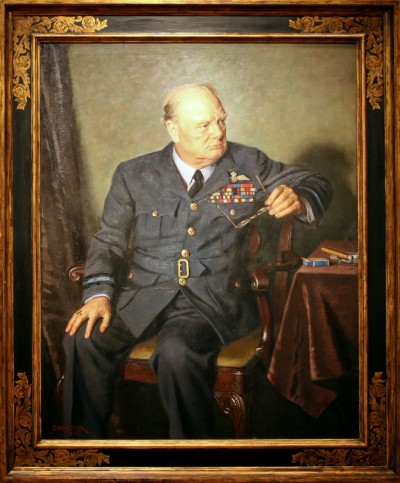With both the internal and external pressures for European integration, and unification, how did it occur?
The Council of Europe
Listen to Winston Churchill’s speech on the “United States of Europe”
In 1946 at the Swiss University of Zurich, former British Prime Minister Winston Churchill delivered a speech on the future of Europe. Churchill caused a sensation when he stated that the future prosperity and security of European countries depended on the creation of a United States of Europe.
“I am now going to say something that will astonish you. The first step in the re-creation of the European family must be a partnership between France and Germany. In this way only can France recover the moral and cultural leadership of Europe. There can be no revival of Europe without a spiritually great France and a spiritually great Germany. The structure of the United States of Europe will be such as to make the material strength of a single State less important. Small nations will count as much as large ones and gain their honour by a contribution to the common cause. The ancient States and principalities of Germany, freely joined for mutual convenience in a federal system, might take their individual places among the United States of Europe.”
- Churchill did not believe that Great Britain could or should be a part of a United States of Europe.
- He did believe, however, that reconciliation between France and West Germany should take place soon.
- He argued that a Council of Europe should be established to achieve the goal of creating a United States of Europe.
Two years later, in 1948, after pressure from different European federalist interest groups, politicians and the United States, the 16 member states of the OEEC met in London to establish the Council of Europe. Ten of the sixteen members of the OEEC signed “the Statute of the Council of Europe” on 5 May 1949. The Council of Europe (CoE) was the first international parliamentary assembly. It discussed co-operation and integration between governments in economic and social policy as well as the integration of European states themselves. Its primary object was “to achieve greater unity between its members.”
While many important projects for European integration were discussed in the CoE, it was an international organization and had very little power to act independently of the member states. However, it served as an important forum for ideas and there were many debates in the CoE on the different ways of achieving European unity, and co-operation among governments in areas such as transportation and scientific research. In addition, many of the founding fathers of the European Union, including Paul Henri Spaak and Robert Schuman, participated in the Council of Europe and discussed ways of achieving European unity.
One continuing obstacle to European unity was the need for reconciliation between France and Germany. In the late 1940s, West Germany was not a member of the CoE, and in fact, did not become a member until 1951.
Click here to learn about the reconciliation of France and Germany through the European Coal and Steel Community.
